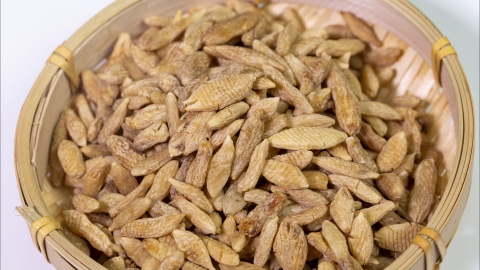What is incompatible with Ophiopogon japonicus (McDoor)?
Generally, Ophiopogon japonicus (McDoor) is incompatible with ingredients such as Tussilago farfara (coltsfoot), black fungus, carp, crab, radish, and so on. Combining them may affect the therapeutic effects or cause bodily discomfort; therefore, appropriate combinations should be considered. Detailed explanations are as follows:

1. Tussilago farfara (Coltsfoot): Ophiopogon japonicus is slightly cold in nature and mainly functions to nourish yin and moisten dryness, whereas Tussilago farfara is warm in nature and primarily used to warm the lungs and relieve cough. These two herbs have opposite properties; when taken together, they counteract each other, reducing their respective therapeutic effects and failing to achieve the desired regulatory outcome.
2. Black Fungus: Black fungus has the function of moistening the intestines and promoting bowel movements, while Ophiopogon japonicus also possesses moistening properties. Combining them may lead to an accumulation of cold properties, especially causing gastrointestinal discomfort symptoms such as diarrhea and abdominal pain in individuals with spleen and stomach cold deficiency.
3. Carp: According to traditional compatibility theory, combining Ophiopogon japonicus with carp may cause adverse reactions, affecting the body's absorption of nutrients and possibly increasing the burden on the gastrointestinal tract, leading to symptoms such as abdominal distension and indigestion.
4. Crab: Crab is cold in nature, and Ophiopogon japonicus is also slightly cold. Combining them may result in excessive accumulation of cold in the body, easily damaging the yang energy of the spleen and stomach, causing symptoms such as nausea, vomiting, and cold intolerance, particularly evident in individuals with cold body constitution.
5. Radish: Radish has the function of promoting qi circulation and breaking up stagnation. However, Ophiopogon japonicus needs to maintain a certain concentration in the body to exert its effect of nourishing yin and producing body fluids. The qi-moving effect of radish may accelerate the metabolism of Ophiopogon japonicus in the body, thus reducing its medicinal value.
When consuming Ophiopogon japonicus, one should avoid taking it with the above-mentioned items simultaneously, and should choose compatible substances according to individual constitution. Those with spleen-stomach cold deficiency and susceptibility to diarrhea should use Ophiopogon japonicus cautiously.





